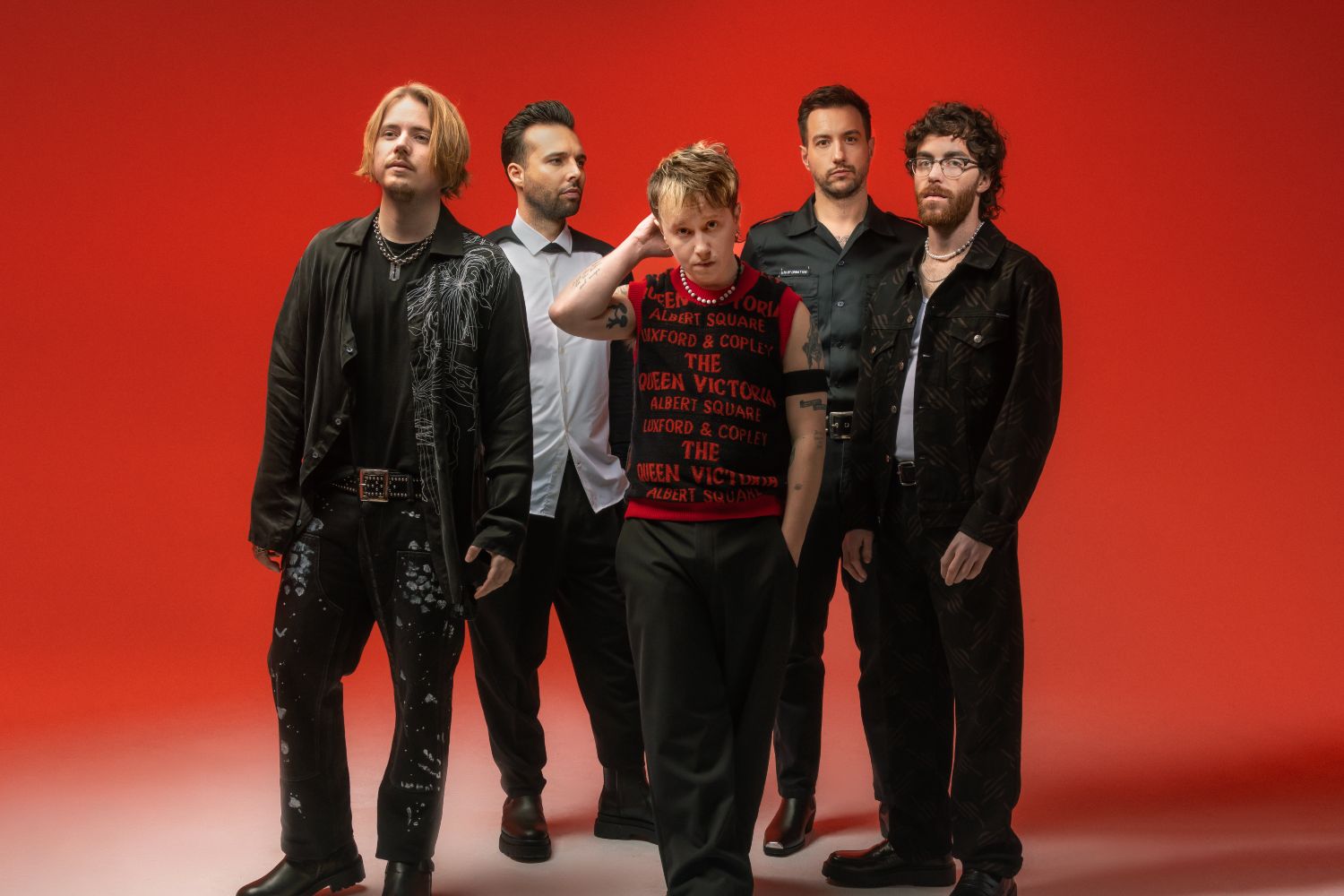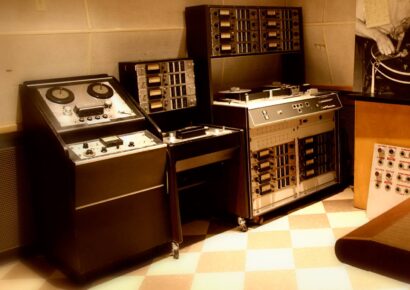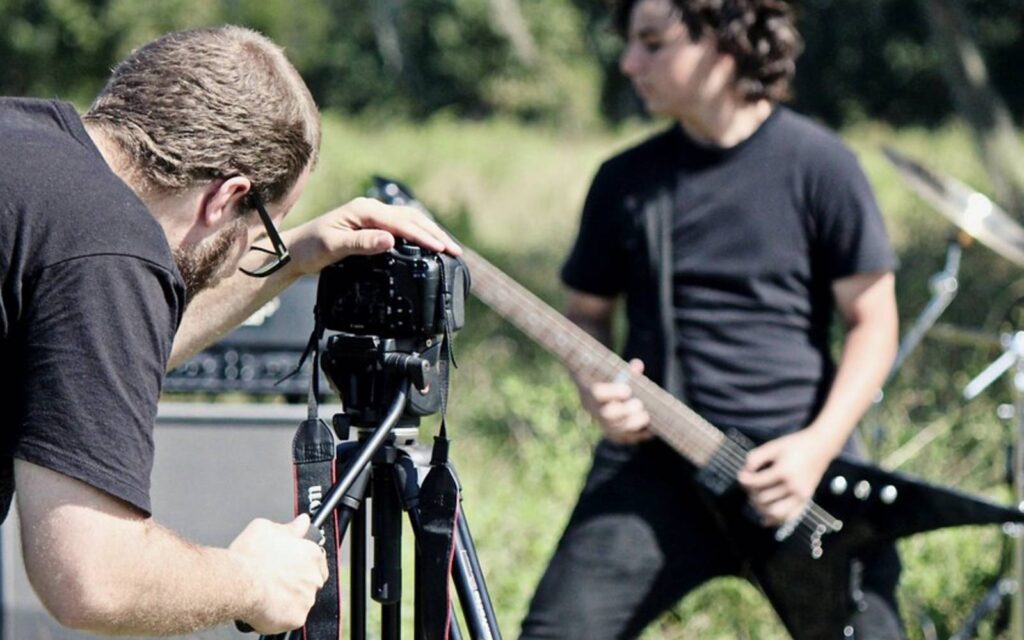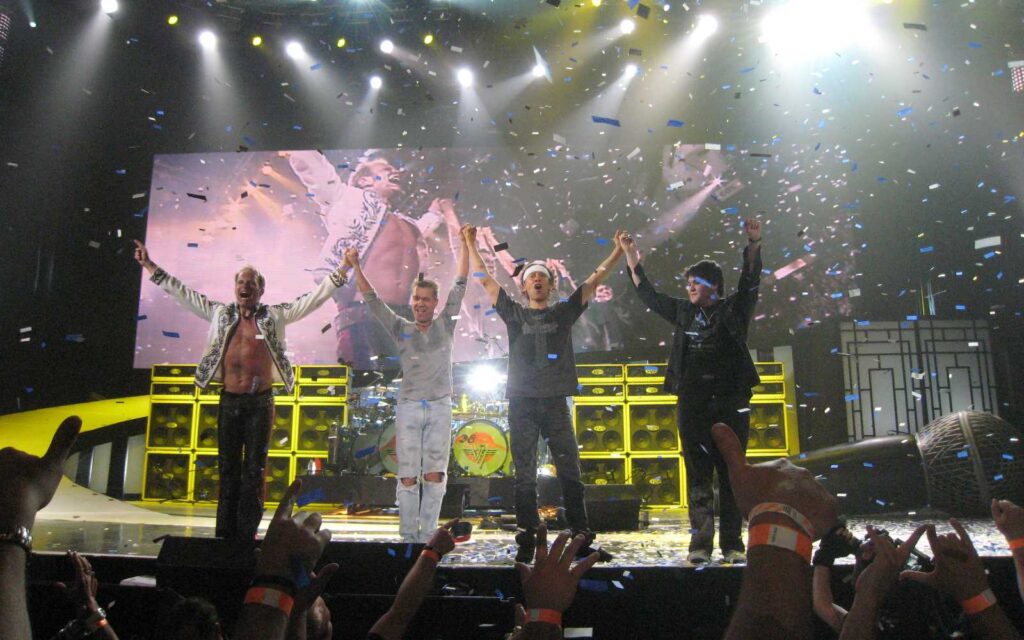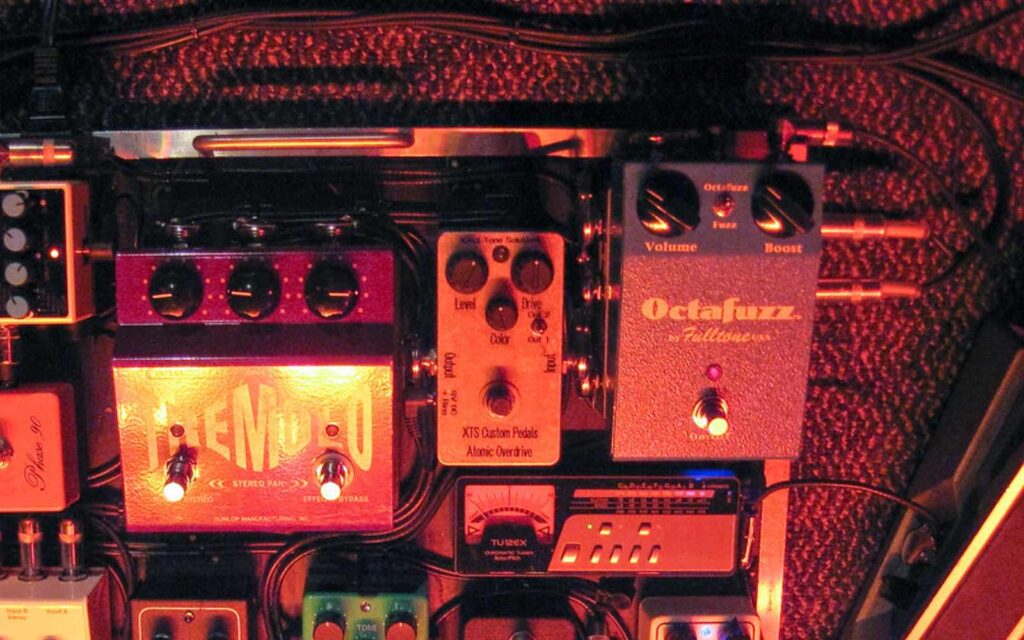Nothing But Thieves' fourth album, Dead Club City, dropped in 2023 and is now met with a Deluxe version, coupled with the band playing around Australia in April and May.
Nothing But Thieves have been building their own brand of heavy, electronic-infused industrial rock to the masses for years now, launching onto the international scene with their debut self-titled album. 2017’s Broken Machine elevated them further, before 2020’s Moral Panic skyrocketed them to global fame with hits like “Is Everyone Going Crazy?”, “Phobia” and more!
The band’s fourth album, Dead Club City, dropped in 2023 and is now met with a Deluxe version, coupled with the band playing around Australia in April and May. Ahead of the tour, we had the chance to chat to guitarists Dom Craik and Joe Langridge-Brown, Dom having also produced Dead Club City.
Guys, congrats on the deluxe re-release of Dead Club City Deluxe as well as the new single “Oh No :: He Said What?”! You guys have a reputation for huge sounding music – where did “Oh No :: He Said What?” begin?
Joe: Dom, you wrote that riff ages ago didn’t you?
Dom: Yeah, I dunno when that was exactly. But I basically had this riff because I got a new synth that I was loving and it just had a certain kind of sound, then I brought it to the boys. I don’t think it was one of those things where anyone knew what the song was going to be. Sometimes we start something and we’re like, “Oh, it’s heading in this direction, let’s just run with it. It wants to go that way”. But with this one, we were kind of a bit stumped, and I would say that maybe that happened on this one for the first time ever. “Oh No :: He Said What?” may have taken the most writes and rewrites out of our whole repertoire. We tried and failed many times, and I actually think we did something like 20 different demos for that song. But what we did love about it was this dark, dance-y mood and it was aligned with Welcome To The DCC. It was challenging, but one of the biggest payoffs. I think we fell in love with the song at the end of it all, and we knew we wanted it to be a single. It was hard work but worth it.
Read all the latest features, columns and more here.
Joe: We only actually got the chorus right at the end of the studio time, it was during recording. We hadn’t actually finished it as we were going into the studio.
Dom: It’s quite rare for us, we normally go in pretty prepared. Everything’s written, everything’s demoed, we know the structures, whereas “Oh No :: He Said What?” Was done in the studio, like Joe said. I think that makes us feel uneasy, but at the same time, you’re working in a very high pressure situation. You’ve got time constraints and it kind of has to work. So maybe there’s a logic in it for that reason.
Are you thinking about how the songs will translate live while you’re writing?
Dom: I think we’ve become less and less concerned about that. You realise pretty quickly it’s very obvious, isn’t it Joe, that it becomes restrictive.
Joe: Definitely.
Dom: And I dunno how you would even do that, to be honest. It would be a nightmare. You’d all be discussing every move like, “Well how are we going to do that?” It would slow the whole process down.
Joe: The mantra’s kind of like, “Well – it will have to sound good.” Somehow, we will make it sound good. We have to.
Dom: We’ve become good at letting go of thinking about how it’ll sound live, and I do think it then allows for more experimentation. And we want the live show to grow. We might not have the answer of how we’re going to achieve it live at that point when we’re writing it, but we will eventually and then in tandem the live show inevitably evolves too. So it is not a bad thing at all.
Dom – how do you think being involved in yourself producing the record yourself impacted the overall outcome?
Dom: I really enjoyed it. I don’t know if I would’ve necessarily been able to do that on any other record, because I learned so much on this one. I think having the faith and the belief in the boys, and the belief that I could do it with the help of the right people was massively reassuring and reaffirming. But I dunno, I collect a lot of gear and a lot of synths and amps and pedals, all that good stuff, that’s what I do in my spare time basically. I’m always looking for a deal on a bit of old gear, or watching a video on something or reading a forum on what someone used in the 60s and 70s. That’s kind of my nerd hobby. And actually, people often chat about what they do outside of the band, “What’s your hobby?” And I actually don’t have anything, I’m a loser. Literally, I just look at gear and play music. It was a hobby, but now it’s all blurred lines. To be honest, I can’t really answer it because you never know what the outcome would’ve been had we gone with another producer or had we gone about the whole record a different way. You just don’t know. But we’re proud of it. So, I’d say overall, the impact was hopefully good.
Joe: The boy did good!
Do you (either for Dom or as a band) find it difficult to delineate the songwriting, demoing, production and recording process or do you stick to separate stages?
Dom: I’d actually say no.
Joe: They kind of blur as it happens. There are rough things we kind of adhere to. Normally quite early on in the process, I’ll be writing down stuff on my phone for the next album, ideas that might happen, just random lyrics or words that I like the sound of together. That’s always how it starts, the very, very start. But it all gets very blurred as it goes.
Dom: Yeah, the sound and the ideas of how the song is structured is kind of instated within the first demos. And if it isn’t – we don’t connect to it, we don’t pursue it if it doesn’t feel like it sounds right or gives us a certain feeling. To be honest, sometimes there are demos we’ve had where there’s not even lyrics at that point, but you just get a feeling. And actually, that’s quite a long springboard for Joe to work from. Not to speak for you, but I know we’ve talked about it before.
Joe: Yeah, and sometimes there are no rules! Sometimes I’ll come in with something and I’m like, “I kind of feel like the song should sound a bit like this. This is the feeling I’m getting”. But then other times it could be something completely different with the lyrics. That creates some sort of magic in the fact that they’re not the same. We’re not good enough to have a formula with all that stuff, basically. It just happens how it happens. We throw enough stuff at the wall and eventually something sounds vaguely good I think.
Where and how was Dead Club City recorded?
Dom: We found a pretty rundown studio in our hometown, Essex, and we decided to go about it in a different way. We wanted more time so we could hire this converted barn and build a studio to our spec. And it was amazing that RCA, our label, who we’ve been partnering with for nearly 10 years now, that they would let us do that. They really believed in us and that meant that we could be there for a lot longer rather than if you fly to L.A, you’ve got to pay for Visas, flights, Airbnbs, all that additional stuff. And because of that, you can only be there for four to six weeks and then you’ve got to fly back.
Joe: And the producer!
Dom: And the producer, it is slightly expensive. But this was a different approach. I think in hindsight, the time was the thing that made the record successful in our eyes. You get a perspective, it is kind of obvious isn’t it: the more time you have, hopefully, if you know when to stop, you can build something great.
Joe: “Oh No :: He Said What?” wouldn’t have happened. We wouldn’t have that song that eventually became a single if we didn’t do it that way.
Dom: Same with “Do You Love Me Yet?”.
Joe: Yeah, none of that would’ve happened without that time. The time and being in that headspace for so long meant we could finish the song. That’s definitely a lesson we’ve learned for the future.
Dom: Also you asked about overdubs and stuff like that. We’re not the sort of band where there’s five of us in the room and then the click comes in and we all start playing together. We don’t do it that way. We often work from the demos because we spend so long getting the demos right. It is primarily overdubs, but some of the demo stuff gets carried over. So, it’s a combination of things. I think doing it with five guys in a room might be quite limiting for us. Maybe it works for other people?
Joe: I think it depends on what you’re making. It would be so limiting to do it on a record like this.
Dom: For a record like this that sounds like this it would be challenging for sure.
Q: The last few years have been a huge for you – what’s next?
Dom begins to look around his hotel room for inspiration.
Dom: I’m gonna start a clothing line, maybe.
Dom picks up a packet of aloe vera gummies and holds it up to the Zoom window.
I’m also gonna start a brand of aloe vera sweets after this. Look at this. This is the sort of shit you get in a hotel. They’re aloe vera gummies, but I’m pretty sure that’s a weed plant on the side.
Joe: For me, probably something generic that’s going to make me loads of money.
Dom: Yeah, we’re going to sack the music off and sell out.
Joe: (laughs) Yeah, we’re gonna sell out!
Dom: Do you have Dragons’ Den in Australia? We’ll get a product pitch together, and that’ll be us, you’ll see us on there. There’s a lot of stuff, but if you want to invest in this unknown brand, you’re more than welcome to.
Nothing But Thieves are touring in April and May. For tickets and more info, keep reading here.
